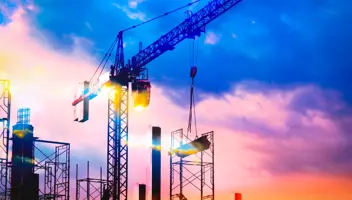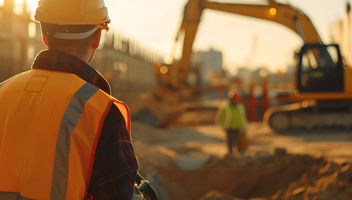On 6 April 2020, the Scottish Government published the eagerly anticipated guidance in relation to Coronavirus specifically for the construction sector. It comes in to effect immediately and extends until further notice, although the government has undertaken to review the measures every three weeks.
Although the drafting of the guidance uses mandatory language at points, the guidance remains guidance only: it does not have legislative effect. Accordingly, compliance with the guidance is not a statutory requirement.
The headline advice for the industry within these guidelines is that all non-essential businesses should close, and construction and its supply chain, except where supporting an “essential sector”, are considered a non-essential.
Essential Projects
In terms of the guidance, for a construction site or supplier to remain open, it must be supporting one of the essential sectors, being one of the 13 designated Critical National Infrastructure (CNI) sectors.
These are Energy; Communications – Telecommunications, Public Broadcast, Postal Services, Internet; Government; Transport; Finance; Civil Nuclear; Defence; Chemicals; Space; Health; Food; Water and Waste; and Emergency Services.
Only sites or parts of the business that are essential are to remain open. What does essential mean? Basically the definition encompasses all COVID-19 related protection and prevention activities, whether it’s creation of testing/production facilities or enabling space to be freed up for COVID-19 activities, or creating or repurposing facilities critical to the COVID-19 response.
Examples given of essential projects include works on hospitals that could provide additional capacity, essential road and rail maintenance, essential repair or maintenance or operation of CNI (such as energy generation, transmission and supply, water treatment and networks or telecom/broadband networks).
Projects that ensure facilities continue to function safely, and maintain essential levels of utility, are also considered essential. Only essential work should take place, and where projects can be safely concluded at a later point they should be.
There are only some examples and the guidance should be read for further information.
Even if a project could be viewed as “essential”, it can only continue if it can comply with the guidance on the safety and welfare of people. If it doesn’t, the guidance states that the work should stop.
Shut-down of non-essential projects
On top of the general guidance that everything but essential work should stop, the guidance goes on to take a “belt and braces” approach, by providing an extensive list of specified sectors in which construction work should stop. This list includes sectors such as schools, housing, leisure and public realm.
There is an exception for sites that can be safely completed within 5 working days, which are allowed to be completed. Personnel may also be allowed on-site to carry out essential and time critical remedial work.
The key point to note is that this is guidance, and is neither regulation nor legislation. It seems strange that this guidance, advising as it does that that non-essential works should cease, is not reflected in the terms of the current legislation i.e The Health Protection (Coronavirus) (Restrictions) (Scotland) Regulations.
Compliance with the guidance is not, in itself, a statutory requirement. There are statutory requirements in existence that will affect construction site obligations in the COVID-19 crisis, namely relevant health & safety legislation. The current guidance should be borne in mind when considering health & safety options available to those involved in all construction projects, whether essential or not.
Related News, Insights & Events

Performance security part three: Retentions
The most widely utilised form of performance security, being retentions and some recent measures introduced in the UK to encourage transparency in retention practices in the construction industry.

Building Safety Levy (Scotland) Bill introduced
Introduced on 5 June 2025, the Building Safety Levy (Scotland) Bill proposes a new tax which, if passed, will be known as the Scottish Building Safety Levy ("the Levy").

Performance security part two: Parent company guarantees
We are considering recent trends and what these mean in practice. Part 1 considered performance bonds; here we’ll focus on parent company guarantees (PCGs).





